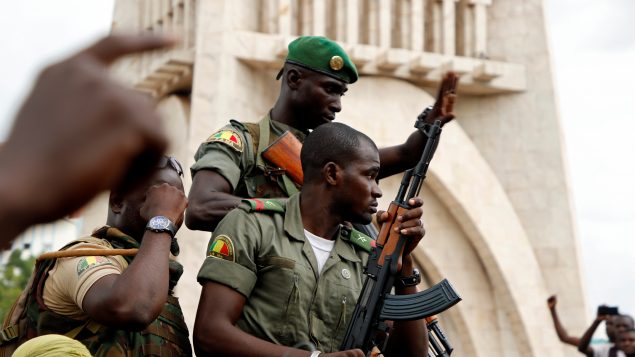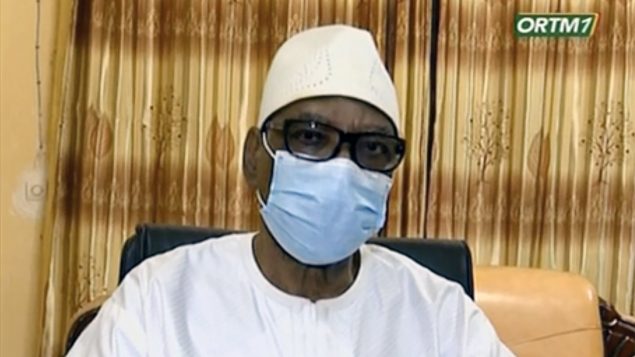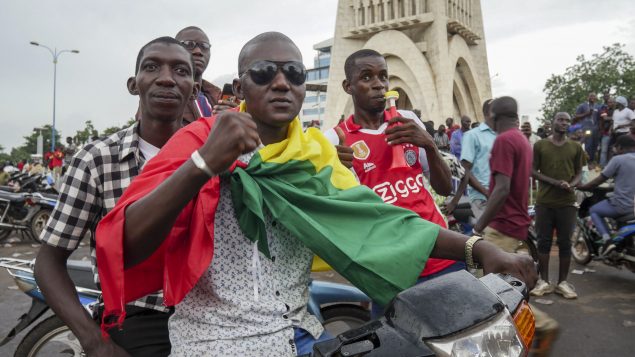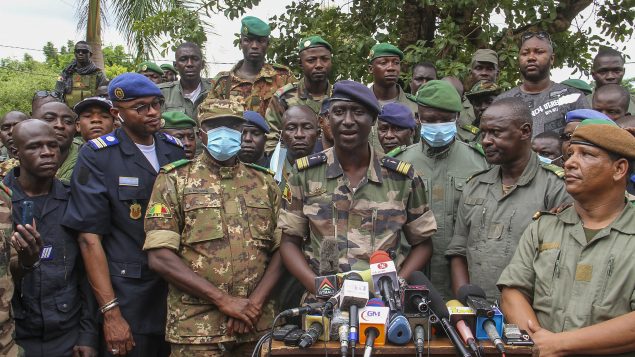Canada is “very concerned” by the situation in Mali and “strongly condemns” the military junta that forced the country’s democratically elected president from power, says Foreign Affairs Minister Francois-Philippe Champagne.
“We call on the Malian security forces and those responsible for these acts to promptly follow Mali’s constitutional order and respect the human rights of all Malians,” Champagne said in a statement released Wednesday.
“Canada will work closely with the Economic Community of West African States (ECOWAS), African Union, and United Nations to help ensure a return to a state of constitutional order and the implementation of the provisions of the Agreement for Peace and Reconciliation in Mali (Algiers Accord) so that Malians can have the peace they deserve.”
Champagne tweeted on Tuesday that all Canadian embassy personnel in Mali are safe and officials in Ottawa follow the situation in the West African country closely.
Champagne’s tweet came hours after mutinous soldiers fired into the air outside President Ibrahim Boubacar Keita’s home and took him into their custody. A distressed Keita announced his resignation on television.
Canada is very concerned by the situation in Mali & strongly condemns the mutiny of the Garde nationale units against the government.
I can also confirm that all @CanEmbMali personnel are safe.
We will continue to follow the situation closely.
— François-Philippe Champagne (FPC) 🇨🇦 (@FP_Champagne) August 18, 2020
On Wednesday, soldiers calling themselves the National Committee for the Salvation of the People promised that they would ultimately hand power to a transitional civilian government but gave no timeline. Junta members urged Malians to return to business as usual.
Condemnation of the coup was strong and swift from many quarters, reflecting international concern about instability in Mali and West Africa more broadly amid increasing attacks by Islamic extremists and the ensuing economic fallout, which has been among the drivers of illegal migration to Europe.
#Mali: Local authorities have announced the closure of all air and land borders as well as a nationwide curfew from 9 p.m. to 5 a.m. until further notice. Limit your movements and monitor local media. https://t.co/nKo7A6MO1U pic.twitter.com/wA4G3A0A0G
— Travel.gc.ca (@TravelGoC) August 19, 2020
The African Union suspended Mali from the bloc and demanded the release of Keita and other detained government officials. Former colonizer France, which has worked to stabilize the country since leading a 2013 military operation to oust extremists from power in the north, called for an immediate return to civilian rule. The United States, which has about 1,300 troops stationed in the region, also denounced the coup and urged dialogue.
The ECOWAS said it would stop all economic, trade and financial flows and transactions between member-states and Mali.
Ahead of a closed meeting on Mali, the U.N. Security Council “urged those mutineers to release safely and immediately all the officials detained and to return to their barracks without delay.” The U.N. is spending $1.2 billion US a year on a peacekeeping mission in the country.

Malian army soldiers are seen at the Independence Square after a mutiny, in Bamako, Mali August 18, 2020. (Moussa Kalapo/REUTERS)
Mali was long hailed as a pillar of stability and democracy in West Africa, but it has been beset by violence and instability since 2012, when a similar military coup created a power vacuum that Islamic extremists took advantage of.
They seized control of major towns in the north and began implementing their strict interpretation of Islamic law.
Only a military operation led by French forces managed to dislodge them, though the extremists merely regrouped in the desert and began launching regular attacks against peacekeepers and soldiers in the area.
In the years since, Islamic extremism has increasingly engulfed not only Mali but also neighboring Burkina Faso and Niger.
In June of 2018, Canada deployed about 250 peacekeepers and eight helicopters to provide the UN Multidimensional Integrated Stabilization Mission Mali (MINUSMA) with a 24/7 aeromedical evacuation capability, as well as tactical airlift. Canadian peacekeepers left Mali at the end of August 2019.
Tuesday’s coup also marked a worrisome step backward for West Africa, where military power grabs were increasingly becoming a thing of the past. Unpopular rulers in recent years were more likely to be forced into exile than overthrown outright by soldiers in the middle of the night.

Malian President Ibrahim Boubacar Keita appears on state television to announce his resignation late Tuesday Aug. 18, 2020. Speaking on national broadcaster ORTM Keita wearing a mask amid the COVID-19 pandemic, said his resignation was effective immediately. (ORTM TV via AP)
After months of anti-government protests amid deteriorating security, Keita’s hand was forced Tuesday.
But even as the international community condemned the coup, Keita’s departure was met with jubilation by anti-government demonstrators in the capital, Bamako.
Keita won the 2013 election in a landslide, emerging from a field of more than two dozen candidates to get more than 77 per cent of the vote. He won reelection five years later, but his political fortunes have tumbled in the year since.
While Mali’s Islamic insurgency started before Keita took office, many felt his government did not do enough to end the violence. The extremists only expanded their reach, infiltrating the central part of the country where they inflamed tensions between ethnic groups. Attacks dramatically increased last year.
Opposition to his government rose further after legislative elections earlier this year that dozens of candidates disputed. In a conciliatory gesture, Keita said he was open to holding the vote again in contested areas. But by June, demonstrators were taking to the streets en masse calling for his ouster.

A man wears a national flag as he celebrates with others in the streets in the capital Bamako, Mali Tuesday, Aug. 18, 2020. Mutinous soldiers detained Mali’s president and prime minister Tuesday after surrounding a residence and firing into the air in an apparent coup attempt after several months of demonstrations calling for President Ibrahim Boubacar Keita’s ouster. (AP Photo)
Analysts said there were few signs that opposition leaders were aware of the coup plot, though they now stand to benefit through an opportunity to serve in any transitional government that emerges.
While Keita had become deeply unpopular, some Malians worried that the future would be worse.
“I condemn the coup d’etat because it won’t advance the country, we’ll keep on being behind,” Sedou Dolo, told The Associated Press in Bamako. “When the army comes they promise us a lot of things, but nothing really happens.”
With files from The Associated Press







For reasons beyond our control, and for an undetermined period of time, our comment section is now closed. However, our social networks remain open to your contributions.